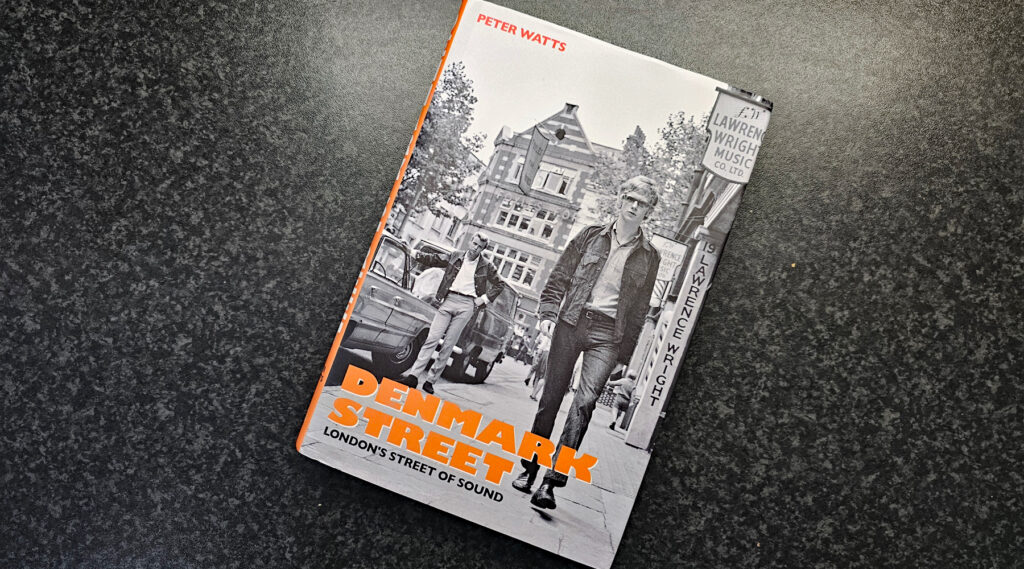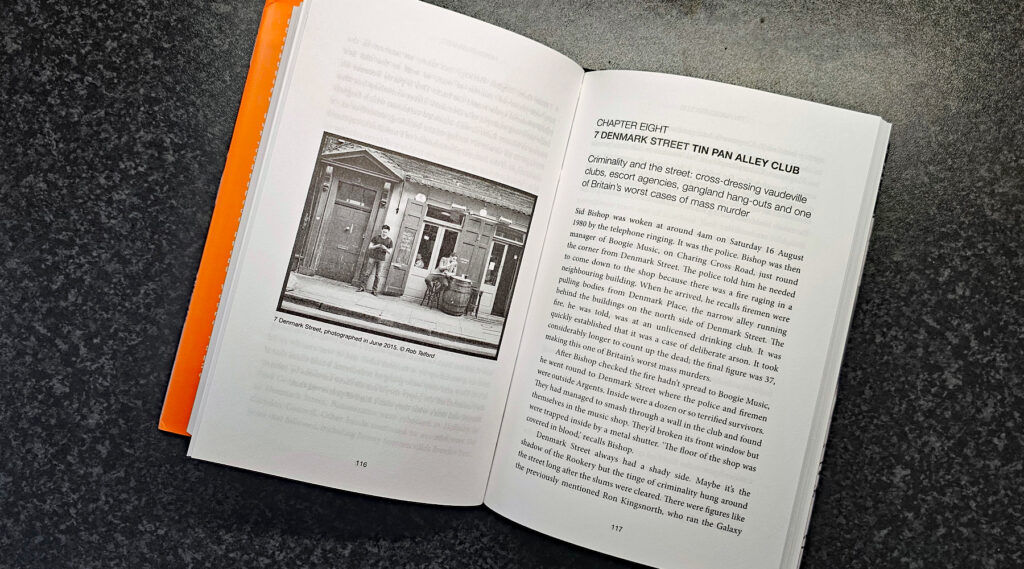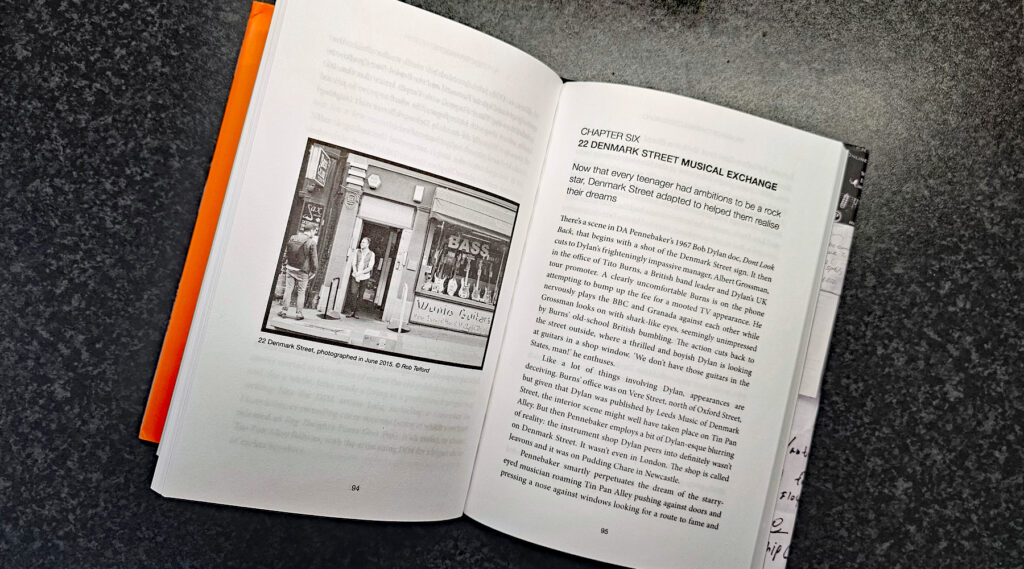A small, seemingly ordinary street in central London has an outsized history, and now a book tells how Denmark Street became London’s home of music.
It’s much a history of the music industry as it is the many very interesting and often dubious characters who turned it from a street dominated by Japanese stores into one devoted to music. At first, sheet music publishers, then the agents and musicians also moved in.
The man who is probably responsible more than most for Denmark Street becoming a haven for music was Lawrence Wright, a publisher who used the pseudonym of Horatio Nicholls and made a fortune selling sheet music — and gave rather less of it to the musicians who wrote the music.
His publicity stunts became legendary, if as much for the chaos they caused — such as when the street was filled with pigs — as his determination to wriggle out of paying.
The author is a confessed music fan who often frequented the bars and music shops that line the street, but this book is no hagiography, being quite candid about its shortcomings and the darker side of the music deals that were done here, to the detriment of the songwriters.
There are so many characters here, and so much money to be made from one popular song, but also the all too familiar story of riches to poverty as success leads to drinking and the songwriter’s mothers ruin into destitution. So many famous music hall songs that you might recognise the tune today, banged out in a local pub in exchange for enough cash to buy another round.
In the 1950s and 60s, the street became home to more managers and agents, and famously ended up being where the likes of the Rolling Stones and Beetles would sign deals, followed by Elton John, Jimmy Page and Marc Bolan to name-drop just a few.
The dark times are not glossed over, and the devastating fire that was shamefully overlooked at the time because the wrong sort of people died in it.
In more recent years, the agents moved out, and the guitars moved in, giving the street its more famous appearance, as overtly music focused rather than hiding most of it away in the first-floor offices.
The recent rebuilding of the area triggered protests about the destruction of Denmark Street, and while not everyone is happy with the results, it has saved the idea of Denmark Street as a home to music as the music shops move back into rebuilt stores.
The music industry is much more professional today, and the chances of being ripped off by unscrupulous agents are far less likely to happen Yet, there’s a nagging feeling that people looking back through rose-tinted glasses might have preferred the past.
As a book, it focuses very much on the characters, shady and otherwise, who for a few decades turned this into Tin Pan Alley (and the book explains how that’s not as old as you probably think). As such, even for this reader, who knows very little about music, it’s a fascinating story that’s very well told.
There are so many phrases you probably never give a second thought to were born here, and you can learn the origins of Old Grey Whistle Test and how the BBC cancelled We’ll Meet Again for being too soppy.
Music fans, especially of the older generation who grew up with the names in the book, will find it very nostalgic, and it’s a reminder that even the smallest of London’s streets can be rich in history. I’ll also applaud the pleasingly sized text, which made reading it much less of a strain on these older eyes.
The book, Denmark Street: London’s Street of Sound by Peter Watts is available from Amazon, Foyles, Waterstones, the publisher Paradise Road, and many good bookstores.










“Japanese stores”??
Yes, Denmark Street was known as’Little Tokyo’ before WW2.